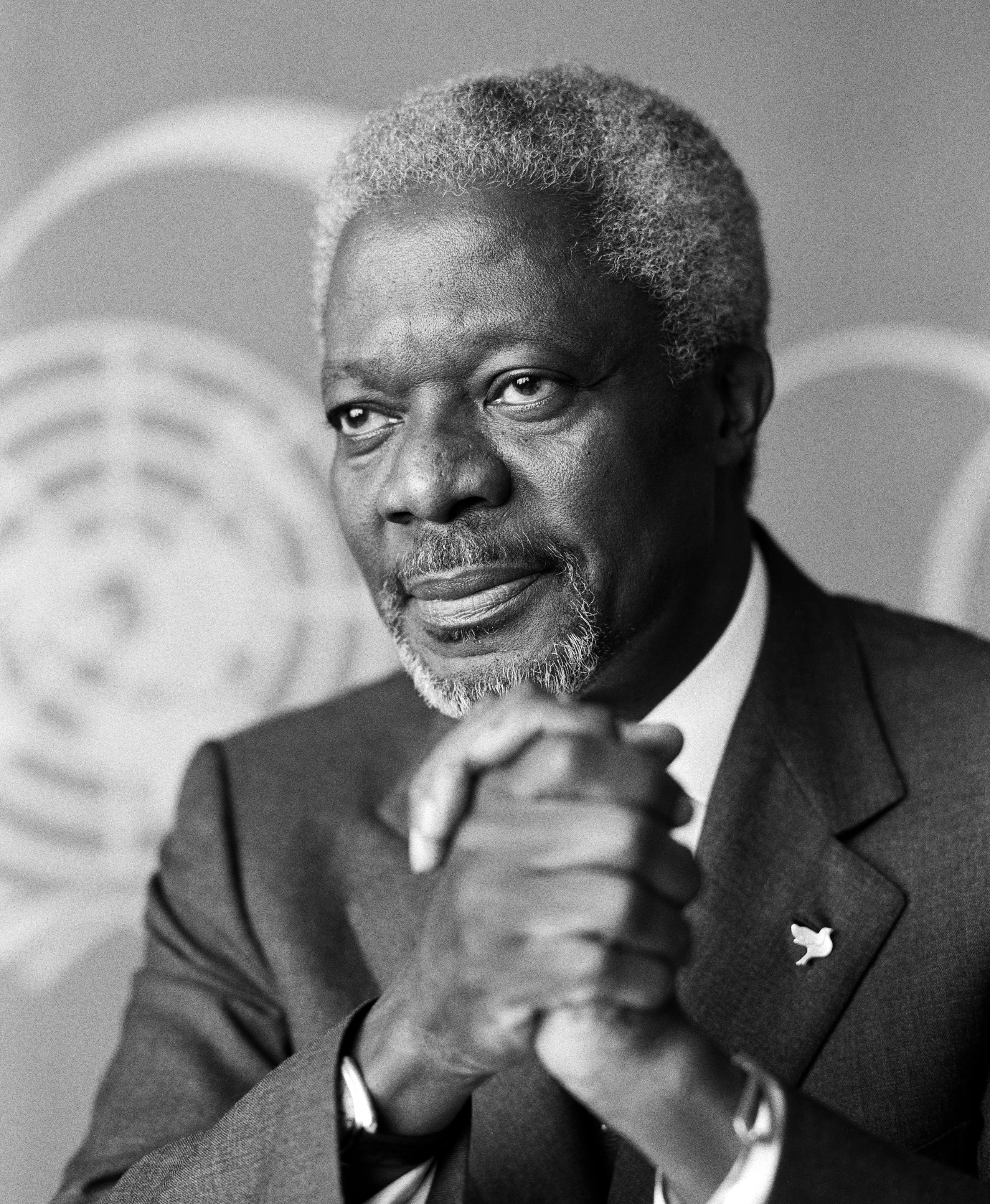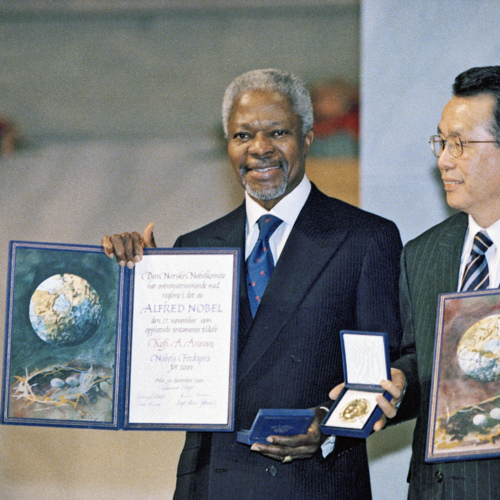Kofi Annan Biography

Portrait of Secretary-General Kofi Annan, 31 December 2006.
Kofi Atta Annan was the seventh Secretary-General of the United Nations and the first to be appointed from the ranks of the UN staff. He began his tenure as UN Secretary-General on January 1, 1997, and completed his two five-year terms on December 31, 2006. A national of Ghana, he joined the UN system in 1962 and before becoming Secretary-General, served the Organization in Geneva, at New York headquarters, and in the field, dealing with matters ranging from personnel and budget to refugee assistance and peacekeeping. As Secretary-General, his priorities were to adapt the Organization for the Twenty-first Century through a comprehensive program of reform which included the following goals: to strengthen its work for peace and development, particularly in Africa; to advance human rights and the rule of law; to raise global awareness of the AIDS epidemic; and to bring the UN closer to the public by working more closely with non-governmental organizations (NGOs), parliamentarians, academic institutions, the private sector, and other partners.
Mr. Annan was born in Kumasi, Ghana, on April 8, 1938. His first name, Kofi, indicates that he was born on a Friday, and his middle name, Atta, means he was a twin and had a twin sister. His father was a prominent businessman and Annan attended secondary school at the elite private Mfantsipim School, a Methodist boarding school in Cape Coast, Ghana. He then began studies at the University of Science and Technology in Kumasi; however, after winning a scholarship to study in the United States, he completed his undergraduate work in economics at Macalester College in St. Paul, Minnesota, USA, in 1961. From 1961 to 1962, he undertook graduate studies in economics at the Institut Universitaire des Hautes Etudes Internationales in Geneva, Switzerland. As a Sloan Fellow at the Massachusetts Institute of Technology (MIT), he received a Master of Science degree in management in 1972. Annan was married to Nane Annan of Sweden, a lawyer and artist. Mr. Annan passed away at the age of 80 on August 18, 2018.
Annan used his “good offices” in several critical political situations. He flew to Baghdad in 1998 to resolve an impasse on the access by UN inspectors to critical sites in Iraq. Also in 1998, he successfully led a mission to help promote the transition to civilian rule in Nigeria. In 1999, helped forge an agreement to resolve a stalemate between Libya and the Security Council over the 1988 Lockerbie bombing. That same year, Annan played an important role in finding a solution to the violence that broke out in East Timor. In 2000, he was instrumental in the role the UN played in certifying the withdrawal of Israeli forces from Lebanon. He also spearheaded the UN participation in the Quadripartite Peace Plan referred to as the Roadmap for the Middle East. Annan is credited with initiating the Millennium Development Goals (MDGs) launched in 2000. The success of this multilateral effort led to the follow-up creation of the Sustainable Development Goals (SDGs).
In 2002, Annan successfully mediated a peaceful solution to a border dispute between Nigeria and Cameroon in anticipation of a ruling by the International Court of Justice that awarded much of the land to Cameroon. Through an agreement by the two sides, he created the Mixed Commission to peacefully oversee the implementation of the Court’s decision. When former Prime Minister of Lebanon Rafik al-Hariri was assassinated in 2005, Annan was asked as an impartial and trusted figure to organize an investigation into the killing. In summer 2006, during the conflict between Israel and Hezbollah in Lebanon, he traveled throughout the Middle East to try to find a mediated, political solution to the hostilities and mold a broader Middle East peace process.
On December 10, 2001, Secretary-General Annan and the United Nations received the Nobel Peace Prize. In conferring the Prize, The Nobel Committee said Mr. Annan “had been pre-eminent in bringing new life to the Organization.” Important aspects of Kofi Annan’s legacy are his persistent efforts at UN reform throughout his tenure, his advocacy for the eradication of poverty, and his promotion of human rights, the rule of law, and human security.
